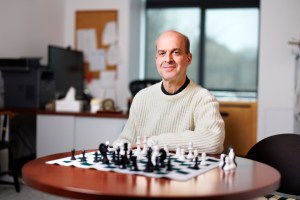Dealing with parents’ mistrust of vaccines
As the Disneyland measles outbreak continues to make headlines and fuel public debate, health professionals seek more effective ways to convince parents who mistrust vaccines to get their children vaccinated, according to Barry R. Bloom, Harvard University Distinguished Service Professor and Joan L. and Julius H. Jacobson Professor of Public Health at Harvard T.H. Chan School of Public Health.
Bloom, an infectious disease expert, discussed the measles outbreak, along with Boston Children’s Hospital’s Richard Malley, on the Greater Bostontelevision program, “Vaccine Controversy: Myths and Facts,” which aired on February 11, 2015. Nationwide, he said, the good news is about 92% of all children that should be vaccinated get some vaccines—but not necessarily all of them. Sometimes children don’t get all the doses, or parents delay having their child vaccinated.
There are two main reasons parents don’t vaccinate their children, according to Bloom. “People are poor and don’t know that the federal government has a children’s vaccine program that could cover it,” he said. Then there are parents who don’t want their kids to get the vaccine. “Some are worried about toxins; some prefer things to be natural and vaccines are not as natural as getting sick from the real disease. Some is opposition and skepticism of science, distrust of government and distrust of industry,” he said.





